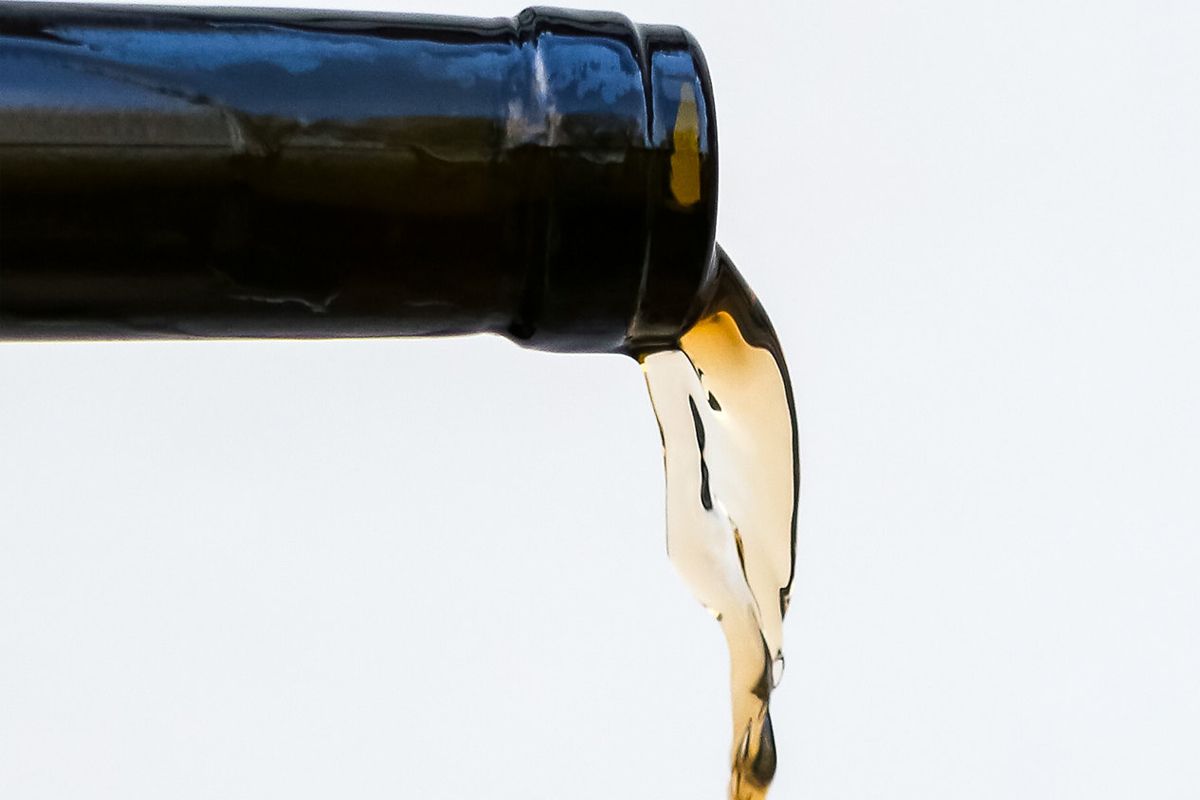
What Is Orange Wine?
Find out more about orange wines, also known as amber wines or skin-macerated white wines.
2 min read
For an in-depth exploration of this topic, please see our article 'The Complexities of Producing Orange Wines', which includes interviews with leading natural winemakers including Iago Bitarishvili in Georgia, Saša Radikon, Martina Celi and Giulio Armani in Italy, Christian Binner in France, Ismael Gozalo in Spain and Craig Hawkins in South Africa.
Orange wines are also known as amber wines or skin-macerated white wines. But don't fret about the semantics. Just wise up on the key facts about this intriguing and ancient style of natural wine:
What are orange wines?
In simple terms, orange wines are made from white grapes using a similar method to (most) reds. Instead of quickly squeezing the fruit and fermenting only the juice, the winemaker adds the skins and seeds - and sometimes the stems. The wine is then left to macerate or soak for anything from 24 hours to many months.
The skin is a key ingredient. This is because this thin protective layer contains a complex array of chemical components including tannins and anthocyanins. All fruits, in fact, share this structure. A peeled apple, for example, tastes surprisingly one dimensional.
The term ‘orange wine’ is credited to David Harvey of UK wine importer Raeburn Fine Wines back in 2004. He wrote: “The quest for a name arose from my concern that there was no name, let alone category for these wines, which are visually, aromatically and structurally divergent from white wines, and would therefore risk rejection in both the on- and off-trades.”
Are they all this colour?
No. You can find wines on a spectrum of colour. In recent years there’s been an explosion of interest in orange wines around the world. Old traditions have been dusted off and revived; new techniques refined. And a changing, warming climate has inspired a flurry of innovation. This has resulted in a fascinating diversity of maceration techniques and wines of many shades - from pinky yellows to deep ambers. Find out more in our in-depth article 'The Complexities of Producing Orange Wines'.
What is the history of orange wines?
“I think orange wine is the first wine - not only in Georgia,” states winemaker Iago Bitarishvili of Iago Winery, who makes all-natural orange wines using the traditional qvevri (kvevri) method in central Georgia. “In the past, maybe all wine was orange. It’s a natural process of vinification.”
In his method, whole bunches of grapes are lightly crushed then left to ferment in large clay vessels in a technique that has been used for thousands of years. These days, a wide range of techniques are used to make orange wines using more modern technology and equipment.
How are they made?
There is a range of different techniques, including the ancient qvevri (kvevri) method where whole bunches of grapes are fermented in large underground clay vessels. Find out more in our in-depth article 'The Complexities of Producing Orange Wines'.
How should I serve orange wines?
Orange wines generally are high in both tannins and acidity. The best way to serve them is slightly chilled - around 15C or cellar temperature.
What foods can I pair with orange wines?
"The nice thing of orange wines is that you can pair them with basically everything," says winemaker Saša Radikon. Orange wines are very versatile and food friendly - in fact one bottle can work well for the whole meal.
Explore our range of orange wines for sale in our online shop (UK only).


